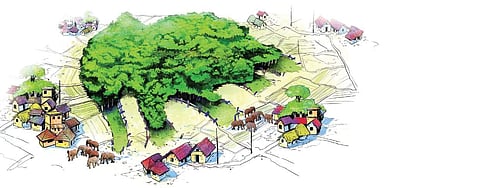

KOCHI: Elephant poaching in Kerala grabbed national headlines a year ago after poachers confessed they had killed around 20 elephants.
However, data from the Forest Department reveals there is a bigger threat to elephants in the state than poaching—man-animal conflict.
The data reveals while 20 elephants were killed by poachers in the last seven years, at least three times that number were killed as a result of rising man-animal conflicts in the period. Two elephants were poisoned to death, 18 died due to electrocution, three perished in train accidents and 37 died due to unnatural reasons. Another twenty-three died due to unknown causes.
As for the human count, 94 people were killed by wild elephants in the state over the last seven years. The government has paid `15.07 crore as compensation for crop damage caused by the marauding elephants and `1.12 crore as ex-gratia to the families of the victims during this period.
P S Easa, former director of Kerala Forest Research Institute, said the pattern of man-animal conflict—especially man-elephant conflict—is high in North Kerala, particularly Wayanad. There is a difference in the genetic structure of wild elephants in North and South Kerala, he says, making the ones from North Kerala more aggressive crop-raiders.
Wild elephants of South and Central Kerala are non-raiders in comparison. He puts the blame for the rise in man-animal conflicts on environmentalists. “They failed to mitigate the fears of the affected
people and take them into confidence on conservation efforts,” Easa says.
The Forest Department’s slew of measures for combating wildlife attacks are yet to bring a desirable result. The department has taken measures such as erecting solar power fences, elephant-proof trenches and walls, chain-link fences, thatched fence and bio-fence.
According to forest officers, the last budget earmarked `7.5 crore for activities to reduce man-animal conflict and `3.50 crore for relief to victims during this fiscal.
An elephant-proof wall will soon be constructed in Kannur and Kasargod districts for 10 and 5 km respectively in vulnerable areas at a cost of `20.4 crore. An additional 291 km will be taken up with funds from the Kerala Infrastructure Investment Fund Board (KIIFB) to the tune of `100 crore. The project period is four years, out of which work worth `25 crore, is for the first phase.